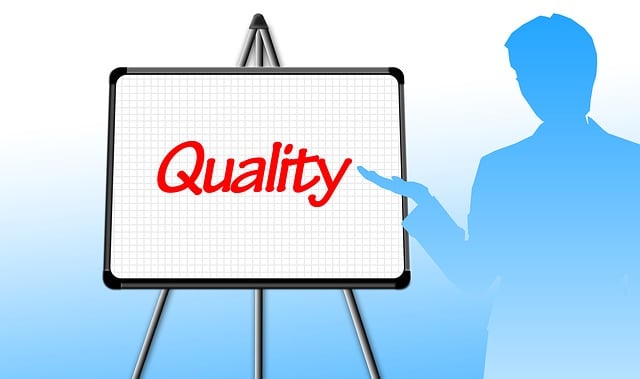In the UK, strict legal requirements for informed consent forms aim to protect individuals and ensure ethical practices, especially with cross-border organizations and multilingual participants. Compliance with GDPR demands clear, specific, and culturally tailored consent forms. Professional translation services are vital to meet these standards, preserving content integrity, and facilitating understanding among diverse communities. Specialized translators accurately translate consent forms while considering context, cultural nuances, and legal requirements, ensuring valid communication and legal compliance. Quality Assurance checks, privacy measures, and engagement of native experts with medical/legal knowledge are crucial for accurate translations that protect individuals' rights in medical and legal contexts.
In the UK, understanding the legal requirements for consent forms is paramount, especially with increasing globalization. For healthcare and research institutions, translating these forms accurately and consistently presents a significant challenge. This article explores the crucial role of translation services in ensuring compliance with legal standards, delving into key considerations like medical jargon translation, cultural nuances, and quality assurance checks. Discover best practices for reviewing and finalizing translated consent forms using specialized translation services tailored to Informed Consent Forms UK.
- Understanding Legal Requirements for Consent Forms in the UK
- The Role of Translation Services in Ensuring Compliance
- Key Elements to Consider During Translation
- Accurately Translating Medical and Legal Jargon
- Maintaining Consistency Across Different Languages
- Quality Assurance Checks for Translated Documents
- Handling Sensitive Information: Privacy and Security Measures
- Cultural Considerations in International Consent Form Translation
- Best Practices for Reviewing and Finalizing Translated Consent Forms
Understanding Legal Requirements for Consent Forms in the UK

In the United Kingdom, the legal requirements for consent forms are stringent to protect individuals and ensure ethical practices. When it comes to medical procedures, research studies, or any situation involving personal data collection, clear and concise language in consent forms is paramount. Translation services play a vital role here, especially when dealing with multilingual participants or organizations operating across borders. Accurate translation ensures that every individual understands their rights and the implications of their consent.
The General Data Protection Regulation (GDPR) sets out guidelines for processing personal data, including obtaining valid consent. Consent forms must be easily understandable, specific to the purpose, and tailored to the target audience’s language and cultural nuances. Professional translation services for informed consent forms in the UK are essential to meet these legal standards and maintain compliance.
The Role of Translation Services in Ensuring Compliance

In today’s globalised world, organisations working in the UK often need to engage with individuals from diverse linguistic backgrounds. This presents a critical challenge when it comes to obtaining informed consent, particularly for sensitive matters such as medical research or legal proceedings. Translation services play a pivotal role in ensuring compliance with legal standards and ethical guidelines. Professional translators specialised in legal documentation can accurately translate consent forms into the native languages of target audiences, maintaining the integrity and clarity of the original content.
This process is essential to protect the rights of participants and ensure they fully understand the implications of their consent. Accurate translation goes beyond simply converting words from one language to another; it involves adapting the content to be culturally sensitive and legally sound in the target jurisdiction. By relying on expert translation services for informed consent forms UK-based organisations can confidently navigate legal complexities, uphold ethical practices, and foster trust with their diverse communities.
Key Elements to Consider During Translation

When translating consent forms, especially for medical or research purposes in the UK, it’s crucial to go beyond simple word-for-word substitutions. Key elements demand meticulous attention to ensure the translated form remains legally sound and effectively communicates the original intent. These include understanding the context, cultural nuances, and specific legal requirements related to informed consent. For instance, terms like “voluntary,” “informed,” and “comprehend” must be accurately conveyed in a language that resonates with the target audience, while adhering to UK regulations.
Translation services for Informed Consent Forms UK should employ native speakers who are not only linguistically proficient but also familiar with the local legal landscape. This ensures that essential details, such as rights, risks, and alternatives, are translated accurately, avoiding any potential misinterpretation that could compromise the integrity of the consent process.
Accurately Translating Medical and Legal Jargon

When translating informed consent forms, accuracy is paramount. Medical and legal jargon must be handled with care to ensure the translated document remains legally sound and effectively communicates the same information as the original. Unclear or incorrect translations could lead to misunderstandings, liability issues, and potential legal challenges.
Professional translation services for Informed Consent Forms UK understand this critical need for precision. They employ translators who are not only fluent in both languages but also have a deep understanding of medical and legal terminology. This expertise ensures that complex concepts are accurately conveyed, preserving the integrity of the form while making it accessible to a diverse range of patients or participants.
Maintaining Consistency Across Different Languages

Maintaining consistency across different languages is a critical aspect of translating consent forms to meet legal standards, especially in the UK where clarity and precision are paramount. When using translation services for Informed Consent Forms UK, it’s essential to ensure that all documents adhere to the same framework of terminology and structure. This uniformity guarantees that patients or participants understand their rights and obligations regardless of the language they speak.
Consistency involves more than just word-for-word translations; it requires cultural sensitivity and legal expertise. Professional translation services employ linguists who are well-versed in both the source and target languages, ensuring that not only grammar but also nuances and contextual meanings are preserved. This meticulous approach minimizes the risk of misinterpretation and ensures compliance with UK regulations, thereby protecting individuals’ rights during medical procedures or research studies.
Quality Assurance Checks for Translated Documents

When translating consent forms, especially for medical or legal purposes in the UK, it’s crucial to implement rigorous Quality Assurance (QA) checks to ensure accuracy and compliance with legal standards. These checks are essential to maintain the integrity of the document and protect all parties involved. Translation services for Informed Consent Forms UK should employ a multi-step process that includes back-translation, where a native speaker reviewer from the target language re-translates the document into its original language to identify any potential errors or nuances lost in translation.
Additionally, cultural adaptation is vital to ensure the consent form resonates with the intended audience. This involves reviewing the translated document to guarantee it conveys the same meaning and tone as the original while adhering to local cultural norms and legal requirements. Regular QA audits and feedback from subject matter experts further enhance the accuracy of the translation, ensuring that all technical and legal terminology is correctly interpreted and presented in the final document.
Handling Sensitive Information: Privacy and Security Measures

When dealing with Translated Informed Consent Forms in the UK, handling sensitive information requires stringent privacy and security measures. These forms often contain personal health data, requiring protection under General Data Protection Regulation (GDPR) standards. Professional translation services specialising in medical documents must implement robust systems to safeguard this information throughout the translation process. This includes secure data storage, access controls, and encryption methods to prevent unauthorised access or disclosure.
Translation accuracy is paramount, especially when dealing with consent forms. Inaccurate translations can lead to misunderstandings, legal complications, and potential harm to patients. Therefore, it’s crucial to engage qualified translators with expertise in medical terminology and cultural nuances. They should also adhere to ethical guidelines and confidentiality agreements to ensure the privacy and security of the original content.
Cultural Considerations in International Consent Form Translation

When translating consent forms for international settings, it’s crucial to go beyond language barriers and consider cultural nuances. Different countries have distinct ethical standards and legal requirements when it comes to patient consent, influenced by their historical and societal contexts. For instance, in some cultures, direct refusal may be less common, while indirect or implicit consent is more accepted.
Translation services for Informed Consent Forms UK should employ native language experts who understand these cultural subtleties. Simply translating word-for-word can lead to misunderstandings or even legal issues. Professional translators must adapt the content to align with local practices while ensuring that the essential meaning and intent of the original form remain intact. This involves careful consideration of terminology, tone, and even the overall layout to create a culturally sensitive document that complies with international legal standards.
Best Practices for Reviewing and Finalizing Translated Consent Forms

When translating consent forms to meet legal standards, it’s crucial to follow best practices to ensure accuracy and compliance. Start by selecting qualified translators with expertise in medical or legal documentation, as this ensures precise terminology and cultural sensitivity. Reviewers should include individuals fluent in both the source and target languages, with a deep understanding of the legal context.
During the review process, verify that the translated forms maintain the original intent and meaning while adhering to local regulations. Check for consistency in terminology and style across all sections. Ensure any technical jargon is accurately rendered and that cultural nuances are appropriately addressed. Finalizing the forms involves comprehensive proofreading to catch any errors or ambiguities, followed by legal review to confirm compliance with UK requirements for translation services of informed consent forms.
When it comes to translation services for Informed Consent Forms (ICFs) in the UK, adhering to legal standards is paramount. By understanding the key elements, from medical jargon to cultural nuances, professional translators ensure accurate and compliant ICFs. Quality assurance checks are essential to maintain consistency across languages, safeguarding privacy, and security. Following best practices throughout the process ensures that translated consent forms meet legal requirements, fostering trust and confidence among diverse patient populations in the UK.



